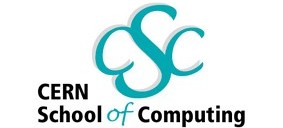|
iCSC2011
Hot Topics in Software
Engineering
Details of all lectures
|
|
|
Theme:
Hot Topics in Software
Engineering
Lecture:
Modern Software Engineering meets HEP
A few questions addressed in
the lecture
|
|
|
Friday 4 March |
|
|
10:00 - 10:55 |
Lecture 5 |
Modern Software Engineering meets HEP |
Frank
Volkmer
Bergische Universitšt Wuppertal- Germany |
|
Description
Many techniques in modern software development can help
greatly to improve the quality and maintainability of the
written code.
This lecture will introduce pair programming as a method for
two people to fully collaborate on code generation with a
very high code quality. Test Driven Development is one
method to write code by first designing a test for the next
piece of code and then test the code with the previous test.
Code refactoring is an often underestimated method to
restructure your code to improve readability and
maintainability.
This
lecture will show some libraries and frameworks that can
help you to use these ideas efficiently and easily.
|
|
Audience
The lecture is mainly targeted to anyone who develops
software but has never properly or officially learned how to
do so. It should give new ideas on the art of developing
software.
.
|
|
Pre-requisite
Some knowledge of the following domains will help attendees
to fully benefit from the lecture :
-
Project organization / management
-
Software development lifecycle:
requirements, design, implementation,
testing, deployment, maintenance
-
Development
models (waterfall model, Rational Unified
Process, etc.) can help
|
|
|
|
|
|
|
|
|
Theme:
Hot Topics in Software
Engineering
Lecture:
Metrics definition inside the software quality assurance process
A few questions addressed in
the lecture
|
|
|
Friday 4 March |
|
|
11:05 - 12:00 |
Lecture 6 |
Metrics
definition inside the software quality assurance process |
Andres Abad
Rodriguez
|
|
Description
Metrics are important
tools used in modern software engineering of large IT
projects. They provide in advance essential information
to help knowing whether the project is heading to the right
direction or to detect in time needed adjustments. However,
collecting metrics is not necessarily an easy task.
In this presentation,
a general overview of what metrics can provide will be
given, together with a description of different approaches
to collect them. I addition a schematic classification of
the existing standards will be provided.
|
|
Audience
The presentation is targeted to
developers, in particular -but not exclusively-
those involved in quality assurance , as well as to
IT managers interested in evaluating the potential
of metrics for their projects or to reconsider the existing
ones.
|
|
Pre-requisite
This lecture can be
reasonably followed by anyone having a minimum of experience
in software development and/or in software quality assurance
processes.
|
|
|
|
|
|

